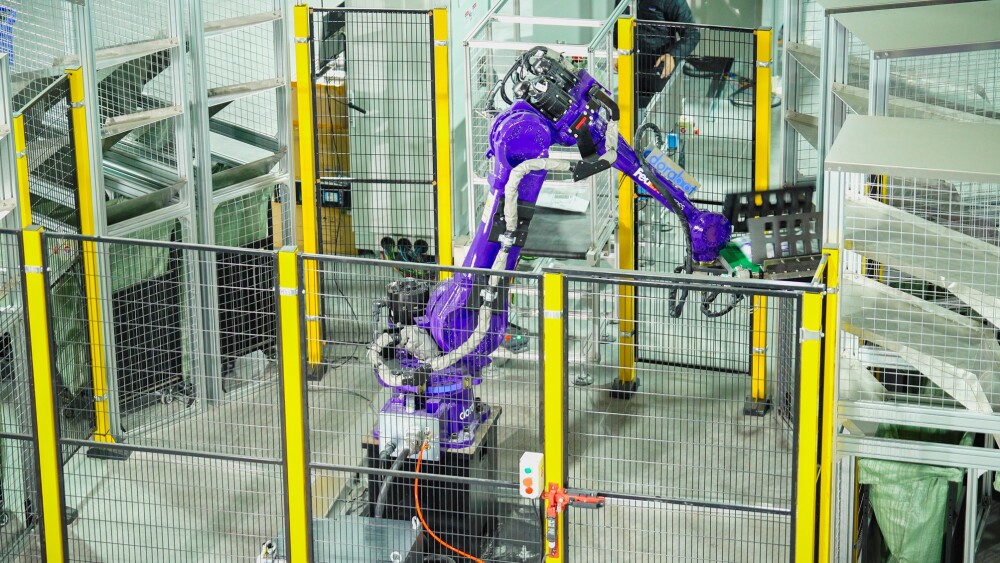Singapore, December 21, 2022 — FedEx Express, a subsidiary of FedEx Corp. (NYSE: FDX) and one of the world’s largest express transportation companies, introduced an AI-powered intelligent sorting robot at its South Pacific (SPAC) Regional Hub in Singapore. The sorting robot represents the company’s continued push in digitizing its operations and building a smart logistics network.
FedEx focus towards automation in Singapore echoes broader industry trends. Triggered by the global pandemic, logistics players are optimizing operational efficiencies, from warehouse management to last-mile delivery[1]. According to Statista, the global warehouse automation market is projected to exceed USD 51 billion by 2030[2], with a significant CAGR of 14.8% from 2022 to 2030[3]. In addition, a study published by UnivDatos Market Insights found that due to the growth of e-commerce and healthcare logistics in emerging economies, analysts foresee significant growth in APAC’s warehouse automation industry market share[4].
Earlier this year, FedEx also deployed a similar sorting robot at its FedEx South China E-Commerce Shipment Sorting Center in Guangzhou. This project in Singapore is supported by Aviation Development Fund – one of the key initiatives by the Civil Aviation Authority of Singapore (CAAS) that supports the development and growth of Singapore’s aviation industry.
“The deployment of the sorting robot is our latest effort in leveraging automation and harnessing artificial intelligence (AI) technology, to optimize operational processes and provide better service to our customers. By investing in warehouse automation, we enhance FedEx operational scalability,” said Eric Tan, managing director at FedEx Express Singapore. “The support we received from CAAS opens the door for further collaboration between FedEx Singapore and local government agencies and boosts our continuous push towards building a smart logistics infrastructure to better serve our customers.”
The robotic arm can sort up to 1,000 packages per hour, carry up to 5kg each time, and cover up to 100 destinations simultaneously. Equipped with a barcode reader that scans packages to obtain destination information, it has an accuracy rate of more than 98.5%, and could potentially facilitate the hub moving towards round-the-clock sort operations.
Ms. Angela Ng, CAAS Director of Aviation Industry said, “CAAS actively works with air transport companies to identify, trial and adopt technology, automation, and digitalisation to enhance operational efficiency and transform jobs. FedEx’s sorting robot is one such example. The project has significantly enhanced air cargo processing productivity and has enabled job redesign for FedEx’s manpower to take on higher value-added tasks.
[1] What’s Next In E-Commerce: 6 Trends Shaping the Future
[2] Warehouse robotics market revenue worldwide 2021-2030
[3] Warehouse Automation Market Size to Reach USD 64,639 by 2030 Says Acumen Research & Consulting
[4] Warehouse Automation Market to Witness CAGR of 12% (2021-2027) Advent of Industry 4.0 and Increasing Demand for Automation and Material Handling Equipment | UnivDatos Market Insights
